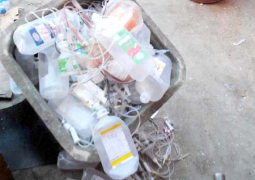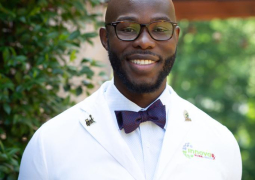
Imagine your brain as a bustling market in Serrekunda – teeming with activity, each stall (or neuron) connected to thousands of others, creating a network more intricate than all the fishing nets in Tanji combined. This three-pound universe inside our skull, with its 86 billion neurons, is more complex than all the computers on Earth. From the cerebrum that guides our thoughts and movements like a skilled Kora player, to the cerebellum that keeps our balance as steadily as a practiced Attaya pourer, each part of our brain plays a crucial role in our daily lives.
One area deserving special attention is the prefrontal cortex, which we can think of as the brain’s “Alkalo” or village chief. Located at the front of the brain, this region is responsible for executive functions such as planning our day at the market, making decisions about our children’s education, controlling our impulses during heated debates, and regulating our emotions during both joyous ceremonies and challenging times. It’s the part that makes us uniquely human, allowing us to reflect on our thoughts and plan for the future, much like how our elders guide our communities with their wisdom.
Dr. Daniel Amen, a renowned psychiatrist and brain disorder specialist, has revolutionized our understanding of brain health through his pioneering work in brain imaging. His approach is akin to a skilled Marabout who looks beyond surface-level symptoms to understand the root cause of an ailment. By examining the brain itself, Dr. Amen’s methods lead to more precise diagnoses and effective treatments.
Crucially, Dr. Amen insists on using the term “brain health” instead of “mental health.” This shift in language is particularly important in our Gambian society, where stigma often prevents people from seeking help for brain-related issues. Just as we wouldn’t hesitate to visit a doctor for malaria or seek help for a broken leg, we should approach brain health with the same openness and urgency.
In our interconnected Gambian families and communities, it’s vital to understand that our brain health is influenced by factors beyond our control, including our genetic inheritance and prenatal environment. The choices our parents and grandparents made, from substance use to exposure to trauma during challenging times in our nation’s history, can shape the brain we’re born with. This perspective should foster compassion and empathy, countering the harsh judgments often seen in our increasingly digital world.
The Adverse Childhood Experiences (ACE) test is a valuable tool for understanding how childhood experiences impact brain health. By identifying these influences, we can better understand our brain’s needs and work towards healing, much like how our traditional healers assess a person’s life history to provide holistic care.
Dr. Amen suggests a simple yet powerful question to guide our choices: “Is this healthy for my brain?” This question is as crucial as asking whether the food we eat is nutritious or whether the water we drink is clean. Let’s examine how various factors in our Gambian context impact brain health...
- Substance Abuse:
Alcohol and drugs can severely damage brain cells and disrupt neural pathways. When we consume substances like alcohol or drugs, we’re essentially introducing toxins into our brain. These substances can kill brain cells, alter brain chemistry, and damage the delicate neural connections that allow our brain to function properly. Over time, substance abuse can lead to significant cognitive impairment, affecting memory, decision-making abilities, and emotional regulation. For young people whose brains are still developing, the damage can be even more profound and long-lasting. It’s crucial to remember that every time we consider using these substances, we’re making a choice that could have serious consequences for our brain health.
2. Processed Foods and Added Sugar:
These can lead to inflammation in the brain, affecting cognitive function. Our brain, like the rest of our body, is what we eat. Processed foods and added sugars are often high in unhealthy fats, artificial additives, and empty calories. When we consume these regularly, it can lead to chronic inflammation in the body, including the brain. This inflammation can damage brain cells and interfere with neurotransmitter function, potentially leading to cognitive decline, mood disorders, and even an increased risk of neurodegenerative diseases like Alzheimer’s. On the other hand, a diet rich in whole foods, fruits, vegetables, and healthy fats can provide the nutrients our brain needs to function optimally, promoting better cognitive function and overall brain health.
3. Lack of Sleep:
Inadequate sleep impairs memory consolidation and cognitive performance. Sleep is not just a time of rest; it’s a crucial period for our brain to perform essential maintenance and consolidation tasks. During sleep, our brain processes and stores information from the day, strengthens neural connections, and clears out toxins that accumulate during waking hours. Chronic sleep deprivation can lead to impaired cognitive function, decreased ability to focus, poor decision-making, and even increased risk of mental health issues like depression and anxiety. Prioritizing good sleep hygiene and ensuring we get 7-9 hours of quality sleep each night is one of the most important things we can do for our brain health.
4. Pornography:
Excessive use can alter brain structure and function, potentially leading to addiction. While this topic can be sensitive, it’s important to understand its potential impact on brain health. Frequent exposure to pornography can overstimulate the brain’s reward system, leading to changes similar to those seen in drug addiction. This can result in decreased sensitivity to natural rewards, impaired impulse control, and altered sexual preferences. Moreover, it can affect relationships and emotional well-being. It’s crucial to be aware of these potential effects and to seek help if pornography use becomes compulsive or starts interfering with daily life and relationships.
5. Excessive Screen Time:
Especially for children, this can impact attention span and social skill development. In our digital age, screens are ubiquitous, but their impact on our brains, particularly developing brains, can be significant. Excessive screen time can lead to decreased attention span, impaired social skills, and even changes in brain structure. For children, it can interfere with the development of crucial skills like empathy, communication, and problem-solving. It’s important to set healthy boundaries around screen use, engage in screen-free activities, and ensure that digital media consumption is balanced with real-world interactions and experiences.
6. Exercise:
Regular physical activity boosts brain health by increasing blood flow and promoting neuroplasticity. Exercise is not just good for our bodies; it’s essential for our brains. Physical activity increases blood flow to the brain, delivering more oxygen and nutrients. It also stimulates the production of chemicals that enhance the growth of brain cells and the formation of new neural connections. Regular exercise has been shown to improve memory, reduce the risk of cognitive decline, and even alleviate symptoms of depression and anxiety. Whether it’s a brisk walk, a dance class, or a gym session, incorporating regular physical activity into our routine is a powerful way to boost brain health.
7. Prayer and Meditation:
These practices can reduce stress and improve brain function. Engaging in prayer or meditation can have profound effects on our brain health. These practices have been shown to reduce stress, lower blood pressure, and even change the structure of the brain over time. Regular meditation or prayer can increase the thickness of the prefrontal cortex, which is associated with attention and emotional regulation. It can also reduce activity in the amygdala, the brain’s fear center. By incorporating these practices into our daily routine, we can cultivate a calmer, more focused mind and improve our overall brain health.
8. Social Media:
Overuse can lead to anxiety, depression, and attention problems. While social media can be a tool for connection, its overuse can have negative impacts on brain health. Constant exposure to curated highlight reels of others’ lives can lead to feelings of inadequacy and depression. The dopamine hits from likes and notifications can create addictive patterns, leading to decreased attention span and increased anxiety. Moreover, the constant multitasking often associated with social media use can impair our ability to focus deeply on tasks. It’s important to be mindful of our social media use, set boundaries, and ensure we’re engaging in real-world social interactions that are crucial for our brain’s social circuitry.
9. Contact Sports:
Repeated blows to the head can cause long-term brain damage. While physical activity is generally beneficial for brain health, contact sports that involve repeated head impacts pose significant risks. Each blow to the head, even if it doesn’t result in a concussion, can cause cumulative damage to the brain. This can lead to chronic traumatic encephalopathy (CTE), a degenerative brain disease associated with memory loss, impaired judgment, and behavioral changes. It’s crucial to weigh the risks and benefits of participating in such sports, especially for young people whose brains are still developing. If engaging in these sports, proper safety equipment and protocols are essential.
10. Childhood Trauma:
Early life stress can alter brain development and function throughout life. The experiences we have in childhood, particularly traumatic ones, can have lasting impacts on our brain health. Exposure to chronic stress or trauma during critical periods of brain development can lead to changes in brain structure and function. This can result in increased risk for mental health issues, cognitive problems, and even physical health problems later in life. Understanding the impact of childhood experiences on brain health underscores the importance of creating safe, nurturing environments for children and providing support and interventions for those who have experienced trauma.
It’s time we start viewing conditions like ADHD, depression, and addiction not as abstract “mental illnesses,” but as manifestations of an unhealthy brain. In our Gambian society, where these issues are often misunderstood or stigmatized, this shift in perspective is crucial. Just as we would seek treatment for malaria or diabetes, we must approach brain health with the same urgency and openness.
I urge all readers to assess their brain health and take proactive steps to protect and nurture this vital organ. This may mean engaging in conversations with family members about generational patterns, seeking professional help when needed, or making lifestyle changes that support brain health. Remember, a healthy brain is the foundation of a healthy life, and by extension, a healthy community and nation.
By shifting our perspective and asking, “Is it good for my brain?”, we can make choices that promote brain health, resilience, and overall well-being. This simple question can guide us in our daily decisions, from what we eat and drink to how we spend our time and who we associate with. It can help us break harmful cycles and create new, positive patterns for ourselves and future generations.
Let’s start playing defense for our brains and those of our loved ones. This means being vigilant about protecting our children’s developing brains, supporting our elders in maintaining cognitive health, and fostering a society that values and prioritizes brain health at all stages of life.
In The Gambia, we have a rich tradition of community care and support. Let’s extend this to brain health. We can create support groups, advocate for better mental health services, and work to reduce the stigma surrounding brain health issues. By doing so, we not only improve individual lives but also strengthen our families, communities, and nation as a whole.
After all, when we nurture our brains, we nurture our future. A nation with healthy brains is a nation poised for progress, innovation, and prosperity. We have the power to shape this future, one brain at a time.
In peace, love, and brain health,
Dr. IDB.
For more information, follow the work of Dr. Badjie and his Innovarx WOW team on www.igh.gm and on social media @innovarxglobal or call +2866200.
Disclaimer: The information provided in this article is for general understanding and does not constitute a diagnosis. For specific concerns or detailed health advice, always consult your designated healthcare professional.




